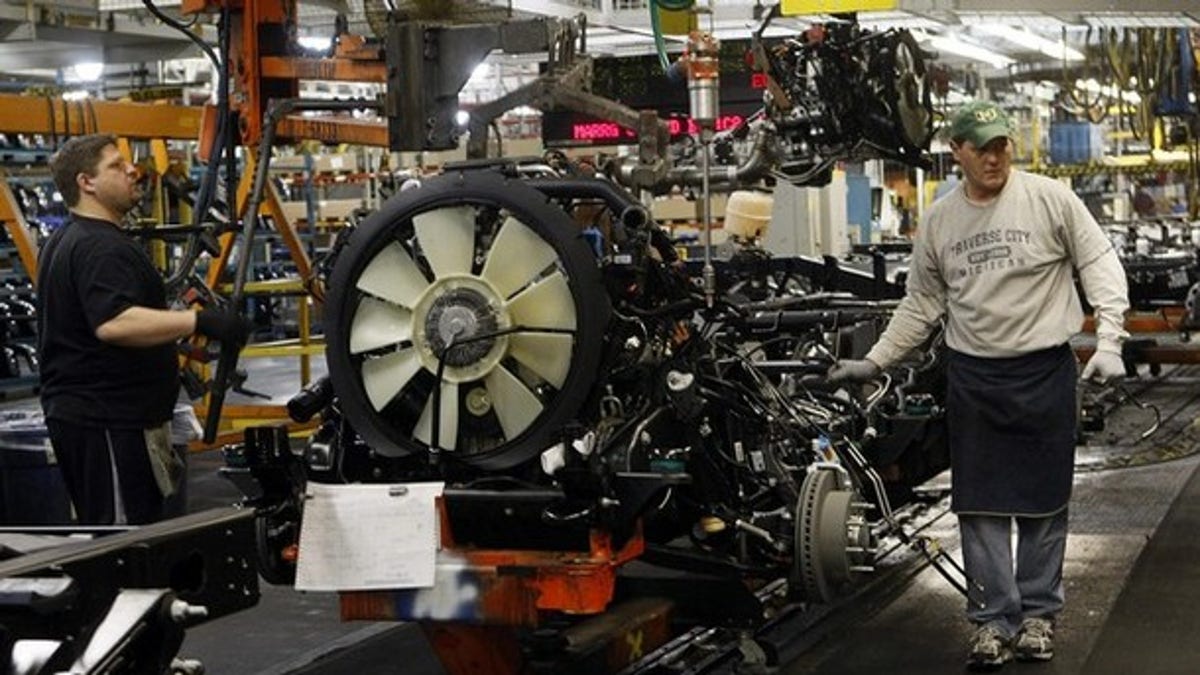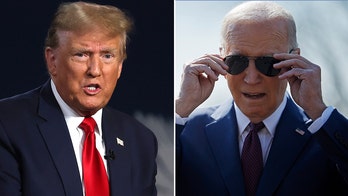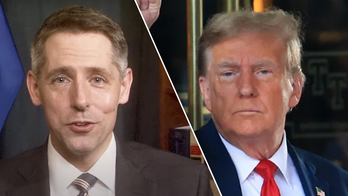
General Motors auto assembly workers lower an engine onto the chassis for Chevrolet Silverados and GMC Sierra pickup trucks at the Flint Assembly in Flint, Michigan January 24, 2011. GM announced plans to add a third shift at Flint Assembly for the plant that makes the Chevrolet Silverado and GMC Sierra heavy-duty pickups. REUTERS/Rebecca Cook (UNITED STATES - Tags: TRANSPORT BUSINESS EMPLOYMENT) (Reuters)
Attorneys general in four states have told the National Labor Relations Board to bring it on in a dispute over constitutional amendments approved by voters last election that bans the use of secret ballots in the formation of unions.
The top law enforcement chiefs in Arizona, South Carolina, South Dakota and Utah wrote to the NLRB on Thursday to say they would "vigorously defend" the changes approved by voters on Nov. 2 despite a lawsuit threat by the federal labor board.
Last month, the NLRB dismissed a complaint by workers in a non-unionized shop that a letter of agreement between the union and the boss to discuss unionization does not in effect become a deal to form a union. The dismissal effectively legitimized "card check" legislation that died in the last Congress.
NLRB Acting General Counsel Lafe Solomon then wrote the attorneys general earlier this month to insist the state constitutional amendments are impermissible because employee rights laid out in the National Labor Relations Act fall under the supremacy clause of the Constitution, which gives federal law predominance in a federal-state dispute. Solomon said the NLRB would sue to force the states to recognize its supremacy.
The states say their amendments are in accord with labor relations law, and urged the NLRB to abandon the suit, which would be fought at taxpayer expense.
"You premise your proposed lawsuit on the erroneous conclusion that our constitutional provisions require elections when federal law does not. We do not believe that is true. Our amendment support the current federal law that guarantees an election with secret ballots if the voluntary recognition option is not chosen," wrote attorneys general Alan Wilson of South Carolina, Mark L. Shurtleff of Utah, Tom Horne of Arizona and Marty L. Jackley of South Dakota.
"Accordingly, your letter fails to establish that our state constitutional protections have disrupted the federal regulatory scheme in any way. Both the state amendments and the NLRA support secret ballot elections in selecting union representatives," they continued.
Opponents of the card check system -- in which a union is recognized if a majority of workers simply sign cards permitting organization -- would intimidate workers into supporting labor groups they might otherwise reject in a secret ballot election.
But union officials say companies often use borderline illegal tactics to discourage workers from organizing and the card check system would allow for a more open process.
The constitutional amendments supporting secret ballots are already in effect in South Dakota and Utah, and will be so soon in Arizona and South Carolina.
Meanwhile, Sen. Jim DeMint, R-S.C., and 17 Senate cosponsors on Thursday introduced legislation to guarantee workers the right to hold a secret ballot election on whether to unionize before a union is formed.
DeMint said the Secret Ballot Protection Act also ensures that states don't have to "fear prosecution from liberal bureaucrats in Washington for democratically passing laws to protect workers' fundamental rights.,
"Secret ballot voting is a basic American value that we must protect," DeMint said in a statement. "No American should be forced to join or pay dues to a union just to have the opportunity to work and provide for their family.”




